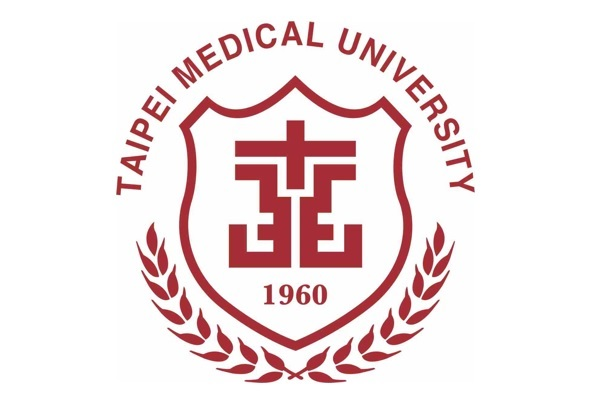Dr. Yi-Fan Chen is an associate professor in Taipei Medical University. Dr. Chen possesses expertise in the fields of Genetics, Geroscience & Geriatrics, and Genetically modified mouse models. When she was a PhD student at National Yang-Ming University, she dedicated herself to the study of aging research. Aging is a progressive functional decline, or a gradual deterioration of physiological function with age, including irreversible age-related process of loss of viability. Exploring a potential strategy to maintain and rejuvenate mitochondrial health is extremely important. She and her mentor, Prof. Ting-Fen Tsai, proposed that Cisd2, a gene with a critical function in modulating health span in mammals, contributes to maintain mitochondrial integrity and functions majorly. Based on this concept, when she started her career at Taipei Medical University, she proposed that an age-dependent decrease of Cisd2 in hair cells and/or auditory nerves leads to age-related hearing loss in mice. This auditory study is being processed for the final mechanism examination. Additionally, they demonstrated that Cisd2 can be a critical target for ameliorating the disease progression of Alzheimer’s disease by maintaining mitochondrial function and integrity .
In recent years, Dr. Chen has a strong passion for investigating stem cells and their surrounding microenvironment. She hypothesizes that controlling the cell fate and stemness of stem cells is highly necessary to prolong the health-span of tissues; otherwise, age-dependently accumulated waste and stress can paralyze the tissue functions. In her lab, they demonstrated that Rrm2b, a critical protein controlling mitochondrial functions, plays an important role in regulating the regeneration capacity of stem cells, resulting in tissue dysfunction and senescence. They pointed out the importance of Rrm2b in myofibers following the investigation of molecular mechanisms in myofiber (part of niche) to modulate the cell fate of muscle stem cells . She believes that establishing mouse models for investigating the relationship between diseases and risk factors is a critical contribution for developing the therapeutic methods. If everyone can follow the principles of 3R, undoubtedly, mouse model will contribute to being a perfect in vivo model.
Aging is a progressive functional decline, or a gradual deterioration of physiological function with age, including irreversible age-related process of loss of viability. In human, several aging-related diseases such as neurodegenerative, cardiovascular diseases, diabetes have endangered human life and affected the life quality. Mitochondria is the energy factory in cell and also play the key role in cellular metabolism. As we known, dysfunctional mitochondria are primary defects in most diseases, especially age associated diseases. To explore a potential strategy to maintain and rejuvenate mitochondrial health is extremely important.
Cisd2 is an evolutional conserved gene and has a critical function as modulating health span in mammals. Cisd2 contributes to maintain mitochondrial integrity and functions majorly. Our studies indicate that Cisd2 regulates calcium homeostasis in adipose tissue and liver of mice, and loss of Cisd2 causes mitochondrial dysfunction and metabolic defects. We hypothesize that an age-dependent decrease of Cisd2 in hair cells and/or auditory nerves leads to age-related hearing loss in mice. This auditory study is processed on the final mechanism examination (MOST 103-2320-B-038-057). We also demonstrated that Cisd2 can be a critical target for ameliorating the disease progression of Alzheimer’s disease via maintaining mitochondrial function and integrity (Chen et al., Journal of Pathology, 2020).
Rrm2b is responsible for facilitating the DNA repair in nucleus and mitochondria. Previous studies reported that Rrm2b could reduce oxidative stress and our study suggested that loss of Rrm2b could disrupt the homeostasis of mitochondrial metabolism. We hypothesize that Rrm2b plays an important role in regulating regeneration capacity of stem cells resulting in tissue dysfunction and senescence. We propose Rrm2b is essential for tissue regeneration and repair, and our research would facilitate to explore the therapeutic methods for diseases with mitochondrial defects. We hypothesized that well-controlling the cell fate and stemness of stem cells are highly necessary for prolong the health-span of tissues; otherwise, age-dependently accumulated waste and stress can paralyze the tissue functions. We pointed out the importance of Rrm2b in myofibers following investigating the modulating mechanisms of myofiber (part of niche) to modulate the cell fate of muscle stem cells (MOST105-2320-B-038-022-MY3, MOST 110-2320-B-038-070; Chen et al., NPJ Regenerative Medicine, 2022).
The age of onset and disease progression are controlled by intrinsic (gene regulation) and extrinsic (microenvironment and environmental issues) factors. The critical genes and mechanisms need to validate and apply on the exploring therapeutic methods. In my lab, to establish mouse models for investigating the relationship between diseases and risk factors is a critical contribution for developing the therapeutic methods.
No.
- 1996/9~2000/6, B.S. degree, Department of Medical Laboratory Science and Biotechnology, China MedicalUniversity, Taichung, Taiwan
- 2000/6, Medical Technologist Licensure
- 2000/7~2001/3, Contract Research Assistant, Centers for Disease Control, Taiwan
- 2001/9~2003/6, Master, Department of Microbiology and Immunology, NationalDefense MedicalCenter, Taipei, Taiwan
- 2003/9~2009/6, PhD, Department of Life Sciences and Institute of Genome Sciences, National Yang-Ming University, Taipei, Taiwan
- 2009/7~2013/6, Postdoctoral Fellow, Institute of Molecular and Genomic Medicine, National Health Research Institutes, Taiwan
- 2013/7~2013/11, Assistant Research Fellow, VYM Genome Research Center, National Yang-Ming University, Taipei, Taiwan
- 2013/11~2020/1, Assistant Professor, The Ph.D. Program for Translational Medicine, College of Medical Science and Technology, Taipei medical University, Taipei, Taiwan
- 2017/6/15~2017/11/30, short-term scholar, Waisman Center, University of Wisconsin, Madison, US
- 2020/2~now, Associate Professor, The Ph.D. Program for Translational Medicine, College of Medical Science and Technology, Taipei medical University, Taipei, Taiwan
